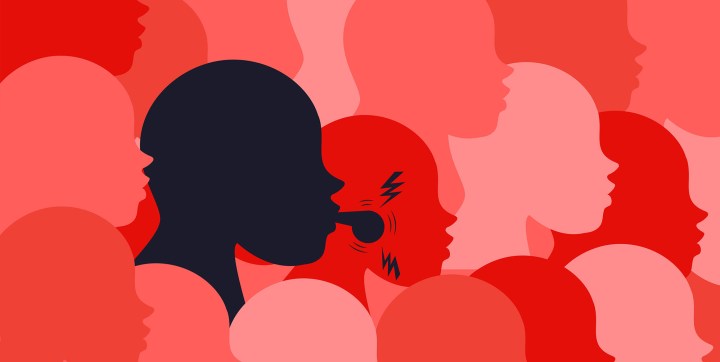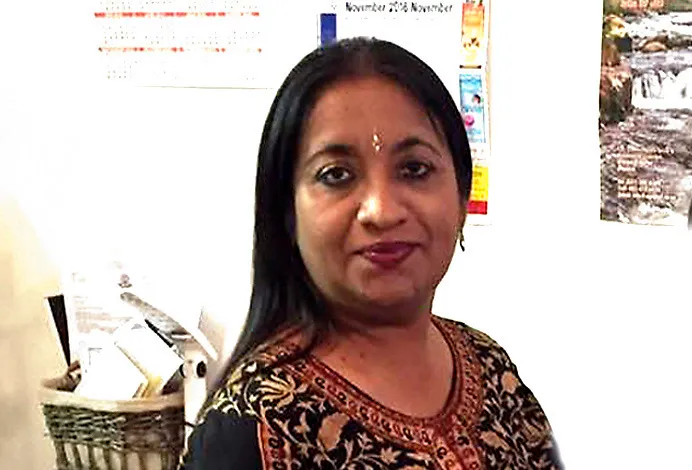FOR THE PUBLIC GOOD
Whistle-blowers need support and solidarity; they should not be recognised only in death

We began to mourn for Babita Deokaran only after she was gunned down. As a consequence, her name has become a symbol of whistle-blowers’ suffering in South Africa. She was, essentially, a martyr.
In 1996, Chuck Palahniuk’s magnum opus Fight Club was published. Most will recall the faithful and artistic film adaptation by David Fincher. The latter was my first contact with the tale, and I must admit that, when watching it in my youth, the true meaning of the narrative escaped me.
It is not, as I had thought, a tale about men beating each other bloody in an after-hours underground fight club. It is about frustration and an escape from that frustration. A frustration that is driven by consumer culture and deindividuation. It is undeniably also a solid group study, and as such, excerpts of it should be included in various group dynamics courses and analyses.
But it is also a tale of resistance and rebellion. The Narrator and Tyler Durden (who, we learn, is just a manifestation of the Narrator’s subconscious) resist “conventional” modern lifestyles, which they express through the fight club and, later, Project Mayhem. It is under Project Mayhem that one of the narrative’s most illuminating contributions is made.
Robert Paulson or “Big Bob”, the Narrator’s first real friend, goes out on a homework assignment to oppose corporate America through an act of destruction (as Project Mayhem would have its members do). Big Bob, unfortunately, loses his life as he is shot by police while on the assignment.
When one becomes a member of Project Mayhem, one has no name. Yet, a revelation dawns upon the group’s members when Robert Paulson dies – “only in death will we have our names since only in death are we no longer part of the effort. In death we become heroes.”
The group members then feverishly chant “Robert Paulson”.
Stepping outside of Palahniuk’s fictional resistance, one can parallel the efforts of Project Mayhem to that of South African whistle-blowers. By no means are whistle-blowers an anarchist organisation seeking to topple corporate South Africa, nor are they even an organisation, but rather individuals typically acting alone in an attempt to expose wrongdoing.
Resistance against wrongdoing

Whistleblower Babita Deokaran, a Gauteng Health Department official, was gunned down outside her home in Mondeor, Johannesburg, in 2021, after exposing corruption. (Photo: Facebook)
By engaging in disclosure, they are engaging in the act of resistance against wrongdoing – a wrongdoing which is affecting both private and public enterprise in South Africa, to an ever-increasing degree. Yet, these whistle-blowers are nameless to us, the broader public, until they suffer severe reprisals.
We began to mourn for Babita Deokaran only after she was gunned down. As a consequence, her name became a symbol for the whistle-blowers’ suffering in South Africa. She was, essentially, a martyr.
Though, while still in the midst of her disclosure, she did not enjoy the popular favour that she garnered posthumously, she would have experienced some form of support from a narrow collection of groups and individuals, bound out of a common concern for the public good.
Such support typically emanates from a loosely organised civil society, comprising non-governmental organisations and independent media outlets. Jimmy Mohlala experienced the same until he was killed at the gate of his home in 2009, in full view of his son, who was also injured in the barrage of bullets.
Another whistleblower was also gunned down in front of his home in 2009 – Moss Phakoe. In early 2023, Cloete and Thomas Murray were murdered while driving along a national highway. This is, quite obviously, not a complete list of whistle-blowers assassinated in South Africa. Not even close, sadly. These names are, however, now familiar to the broader South African public.
Only in death, now, do they have a name.
The problem also extends to those whistle-blowers who are fortunate enough to be alive. Alive, but still suffering. Johan van Loggerenberg, a South African Revenue Service (SARS) whistleblower, has spent the last 10 years with his life in turmoil. His name has been dragged through the mud, and he has also faced legal battles. His house has been burgled, and he was severely assaulted in another incident.
History of retaliation
Connecting the latter two incidents to his disclosure might be difficult to prove, but it raises serious cause for concern, a concern which is well-founded because of the history of retaliation against whistle-blowers in South Africa. His name really only came to the fore after his disclosure, particularly after being accused of forming part of a “rogue unit” within SARS.
Though, what if he had a name before the death of his career and before he was forced onto the societal cusp? Van Loggerenberg headed and conducted crucial investigations with the “rogue unit”, which was in actual fact a SARS high-risk investigation unit, from 2007 to 2014. Public support during this period would have likely resulted in a different outcome for him.
The same could be said for Trillian’s Mosilo Mothepu and Bianca Goodson, the Public Investment Corporation’s Simphiwe Mayisela, Ecobank’s Altu Sadie, South African Airways’ Cynthia Stimpel, Bain & Company’s Athol Williams, Samsung’s June Bellamy and countless, countless others.
By no means are any of these whistle-blowers physically dead, but their lives are definitely not the same as they were prior to their disclosures. The act of disclosure has actually been quite cathartic for a few whistle-blowers, and I emphasise “a few”.
But, even with this catharsis, their disclosure experiences have been greatly traumatic. They might find themselves liberated, but with an open gunshot wound to the face, just as happened to Fight Club’s Narrator.
So, how do we save the South African whistleblower from being a Robert Paulson and having a name only in death?
Non-governmental organisations have played a role in addressing this, which is particularly important in the face of inadequate legislation. They have directed attention to whistle-blowers in an attempt to garner public support for them. Independent media outlets have played a crucial role in amplifying this.
Thus, these two fundamental aspects of civil society have been active. Civil society has also recently grouped together to intensify their impact, although a conglomerate of organisations would ideally need to include all organisations with the public interest at heart, which would be impossible to execute due to the sheer scope of operations required.
But a high degree of coordination is undeniably needed between civil society organisations in order to raise adequate public support for South African whistle-blowers. This is particularly difficult to execute without the support of an independent government institution which would pool resources together, centralise information and execute a streamlined coordination of tasks.
Even with such an institution in place, whistleblower protection legislation still needs to be reformed.
Finally, the onus also lies with us – the reader, the “ordinary” individual. We need to be both receptive to the information disclosed by whistle-blowers and express open support for individuals acting in the public good. After all, the public good serves us – the denizens of a state.
Our activity could entail something as simple as donations to a civil society organisation of your choice or a mass movement in the shape of a walk for whistle-blowers.
Maybe this would result in whistle-blowers having a name not only in death, but in life as well. DM
Dr Ugljesa Radulovic is a senior postdoctoral research fellow in the Department of Sociology at the University of Johannesburg.






 Become an Insider
Become an Insider
Comments - Please login in order to comment.